Slide 8 Cluster, Harold Paul Olmo Papers D-280, Special Collections
50 Features of Special Collections: the World’s Greatest Wine Library
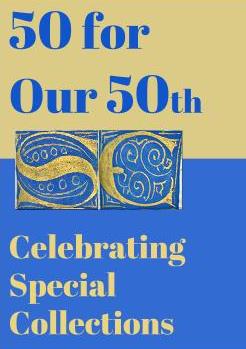
Don’t take our word as the world’s greatest wine library. Take it from the man who wrote the book on wine, Hugh Johnson, author of World Atlas of Wine, who donated his papers to Special Collections in 2015 to 2016. He described us as “simply the greatest wine library in the world.”
What makes us great is the breadth, variety, and caliber of materials that we hold on the growth and development of the wine industry, including research in the study of grape cultivation (viticulture) and winemaking (enology). Before diving into the types of collections available, let’s take a brief look at the origins of UCD’s Viticulture & Enology (V&E) department in order to understand the significance of the materials that we have.
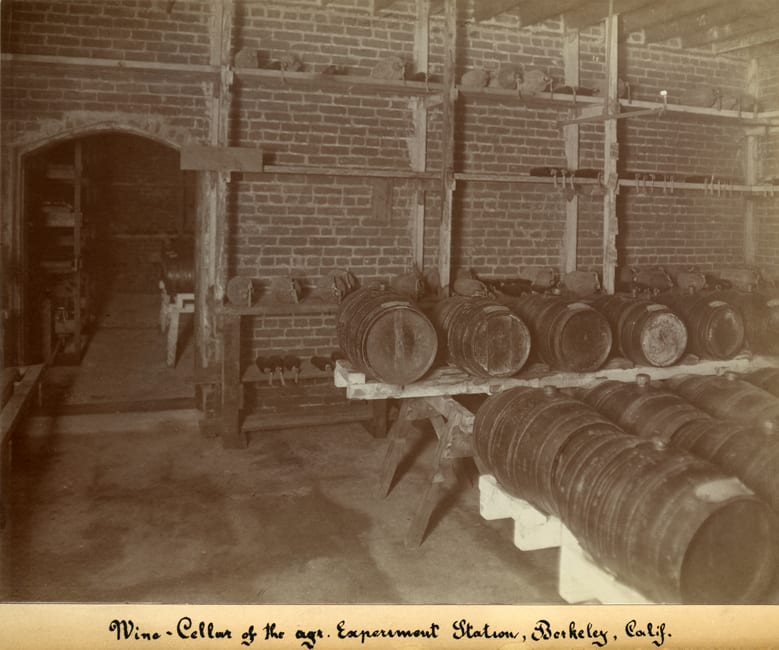
Research in V&E originally started in Berkeley at the University of California in 1880 after the California Legislature passed a special bill to support it. When the University Farm first offered courses in 1908, viticultural research moved to Davis. After the National Prohibition Act passed in 1919 banned commercial winemaking, studies in enology as a subject area ended; the V&E division changed to the division of viticulture and fruit products. After Prohibition was repealed in 1933, the division was reorganized into viticulture and food technology. While food technology remained in Berkeley, V&E officially moved to Davis to concentrate on research and instruction in scientific winemaking. By 1935, Albert J. Winkler who started working at Davis in 1921 as an associate in viticulture, becoming Professor of Viticulture in 1937, served as chair of the department until 1957. During this time, Winkler increased the professional staff from a handful of people to a staff of 14, including graduate students Harold P. Olmo and Maynard A. Amerine.
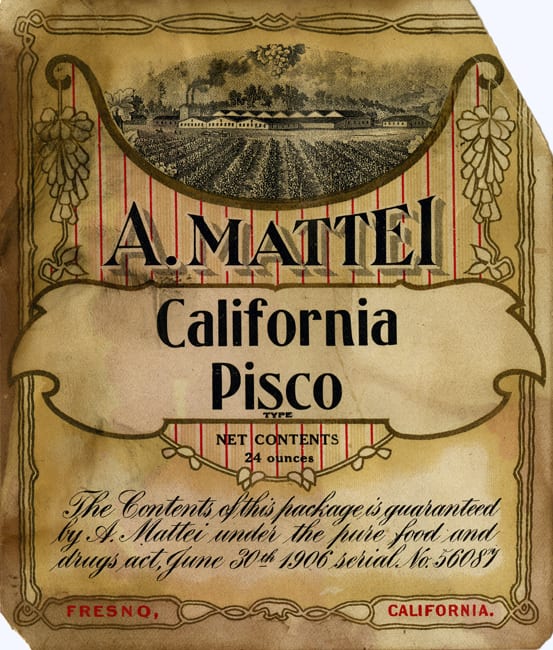
California’s declining wine industry started to pick up after World War II with help from the research coming out of Davis. Olmo, Professor of Viticulture (1931 to 1977), was a geneticist and one of the world’s most eminent grape breeders. His many achievements included developing more than 30 new grape varieties, such as the wine grape Ruby Cabernet and the juice grape Rubired. Thanks to Olmo’s clonal selection efforts on Chardonnay, which was not a common or productive variety, Chardonnay is the most widely planted wine grape in the country. Out of the entire faculty in the V&E department, the most internationally well-known was Amerine, Professor of Enology (1952 to 1974), chair of the department from 1957 to 1962, and “father of American wine”. Amerine was a prominent researcher in and author of numerous publications about wine production and evaluation, a lecturer, bibliographer, and consultant on many aspects of wine. His 16 books and hundreds of research articles continue to serve as foundational texts in the study of winemaking and sensory evaluation.
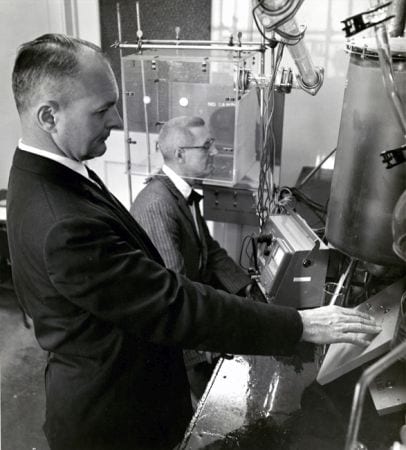
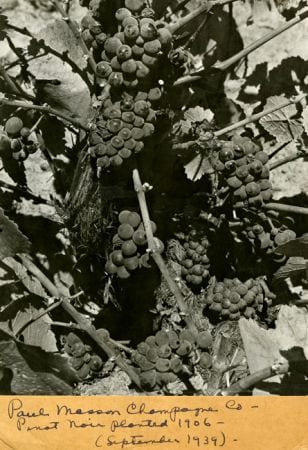
Special Collections has the papers of many of the departmental researchers who were behind the improvement and growth of California’s wine industry after World War II, including Maynard A. Amerine, Harold P. Olmo, James F. Guymon, Harold W. Berg, A. Dinsmoor Webb, Cornelius S. Ough, Vernon L. Singleton, and Ralph Kunkee, to name a few. We also hold the papers of Frederic T. Bioletti, University of California’s first Professor of Viticulture, as well as the first chair of the Viticulture and Fruit Products department in Berkeley. While studying for his Bachelor’s and Master’s degrees at Berkeley from 1889 to 1900, Bioletti worked as an assistant to pioneering soil scientist, Eugene W. Hilgard, and studied the fermentation of wines under various conditions. As a professor, he was active in introducing and breeding new grape varieties and founded the grape breeding program at the University of California Agricultural Experiment Station.
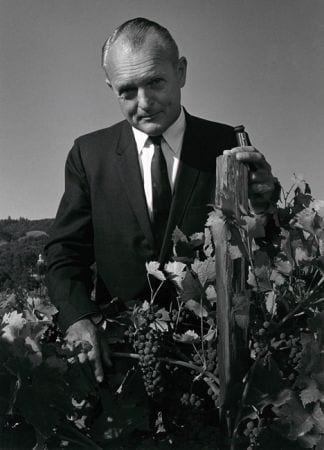
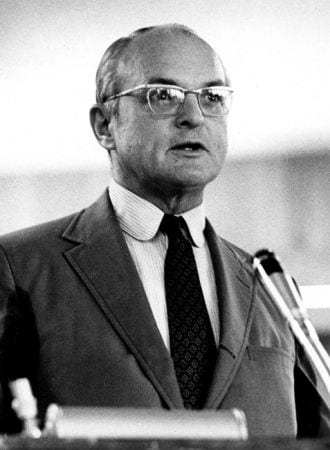
In addition to the collections already mentioned, Special Collections holds many more papers of individual wine researchers and other materials related to the growth and development of the wine industry, including records from merchants, historians, wineries, trade associations, and governmental agencies, with subject areas focusing on grape growing, winemaking, marketing, and distributing wine and other fermented beverages. Our ephemeral collections include broadsides, posters, newsletters, scrapbooks, labels, and pamphlets – we have one of the largest wine pamphlet collections in the world in a range of languages that includes French, German, Italian, Latin, Portuguese, and Spanish. If you’re online, check out the crowd-sourcing transcription project, Label This, which has digitized most of the wine labels from a subseries of the Maynard A. Amerine Papers. And of course, there are always the 30,000 books in more than 50 languages, which are available to anyone in the open stacks on the third floor in the Viticulture & Enology section of Shields Library.
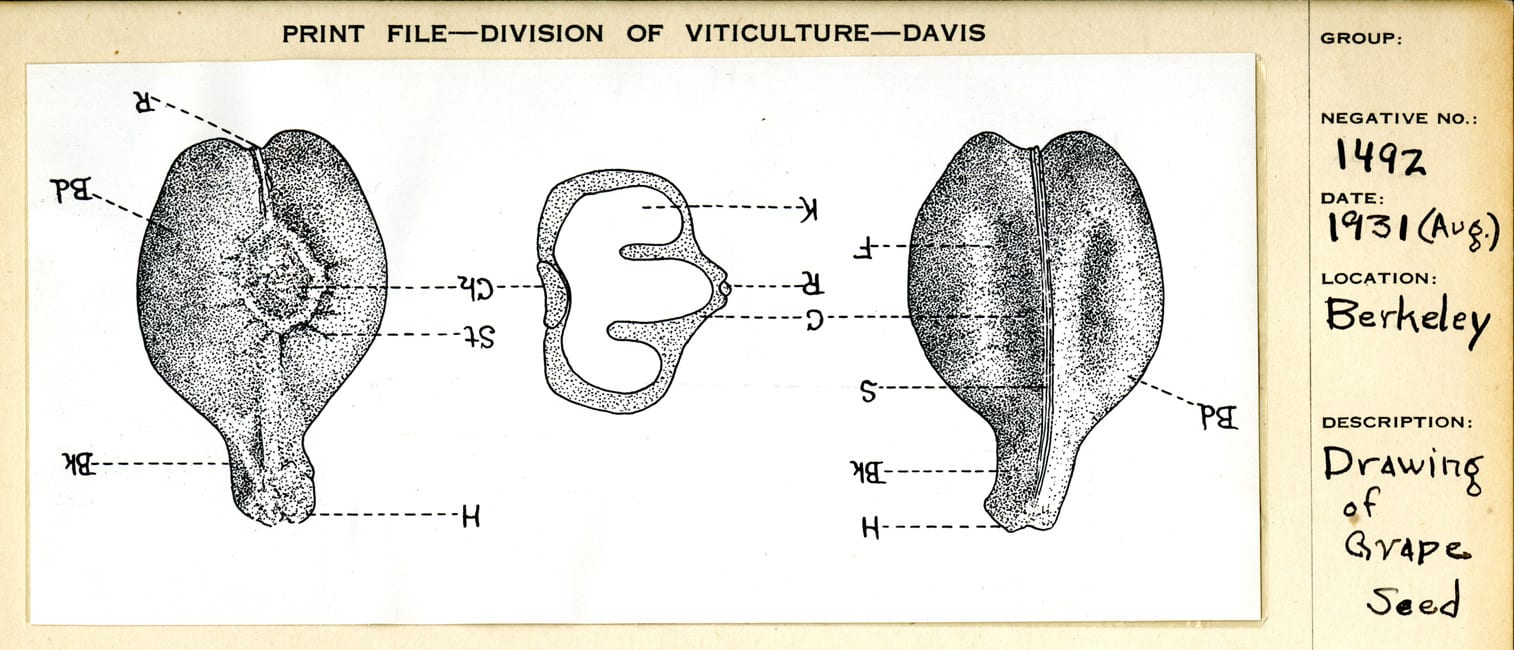
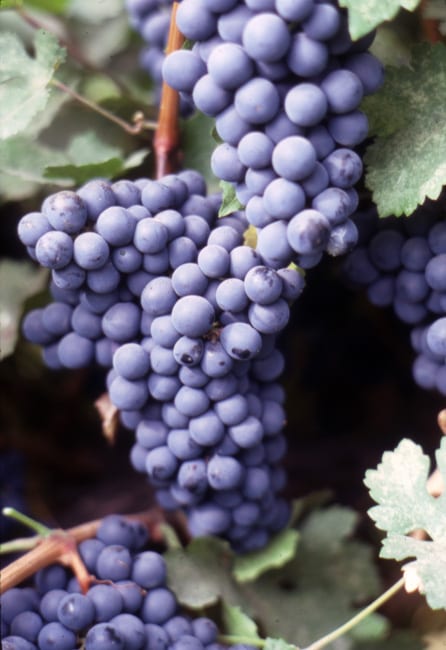
Uncaptioned images, first row, left to right:
Sensory Machine, Maynard A. Amerine Papers D-060, Special Collections
Photograph of Pinot Noir, Harold Paul Olmo Papers D-280, Special Collections
Uncaptioned images, second row, left to right:
Dr. Maynard Amerine in the U.C. Experimental Vineyard near Oakhurst, Maynard A. Amerine Papers D-060, Special Collections
Amerine lecturing, Maynard A. Amerine Papers D-060, Special Collections
Works cited:
Anson, Jane. “Hugh Johnson donates wine manuscripts to UC Davis.” Decanter. February 22, 2016. Accessed May 21, 2017. http://www.decanter.com/wine-news/hugh-johnson-donates-wine-manuscripts-to-uc-davis-293418/
Anson, Jane. “Anson on Thursday: Inside the ‘world’s greatest wine library’.” Decanter. February 25, 2016. Accessed May 21, 2017. http://www.decanter.com/wine-news/opinion/news-blogs-anson/anson-on-thursday-inside-the-worlds-greatest-wine-library-293869/
Foley, Ann. Abundant Harvest: the History of the University of California, Davis. Davis, Calif.: UC Davis History Project, 2001.
“Frederic Theodore Bioletti.” University of California: In Memoriam. 1939. Accessed May 21, 2017. http://texts.cdlib.org/view?docId=hb867nb542&doc.view=frames&chunk.id=div00002&toc.depth=1&toc.id=
“Harold Olmo.” University of California: In Memoriam. Accessed May 21, 2017. http://senate.universityofcalifornia.edu/_files/inmemoriam/html/haroldolmo.htm
“Maynard A. Amerine.” University of California: In Memoriam. 1998. Accessed May 21, 2017. http://texts.cdlib.org/view?docId=hb1p30039g&doc.view=frames&chunk.id=div00002&toc.depth=1&toc.id=
O’Neill, Molly. “Maynard Amerine, 87, California Wine Expert.” The New York Times. March 13, 1998. Accessed May 21, 2017. http://www.nytimes.com/1998/03/13/us/maynard-amerine-87-california-wine-expert.html